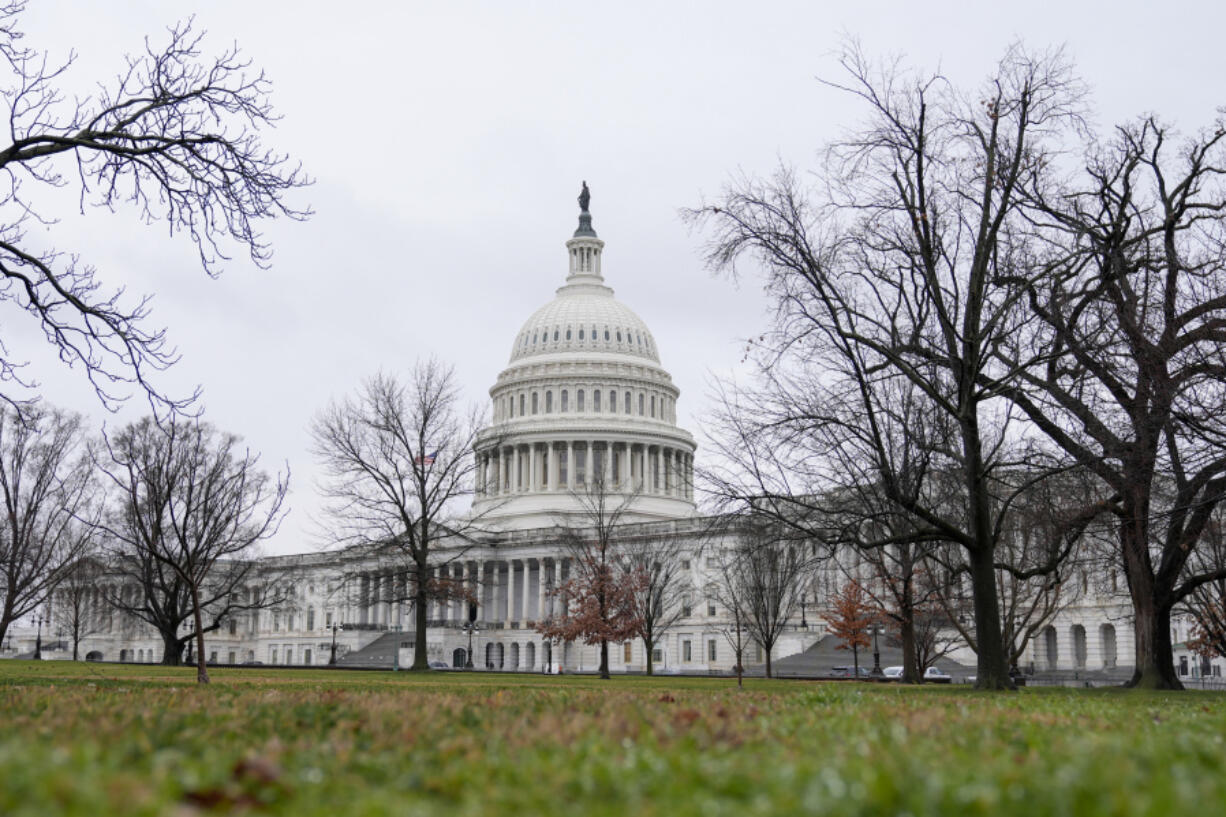WASHINGTON (AP) — The Senate is laboring to approve a $460 billion package of spending bills in time to meet a midnight deadline for avoiding a shutdown of many key federal agencies, a vote that would get lawmakers about halfway home in wrapping up their appropriations work for the 2024 budget year.
While the Senate is expected to approve the measure, progress was slow in getting the bill to a final vote. Senators were expecting debate to go late into the night. The package advanced on a key test vote Friday afternoon to limit debate, but it remains to be seen if senators can avoid a short shutdown into the weekend as some lawmakers voice concerns about the amount of spending in the bill.
“I would urge my colleagues to stop playing with fire here,” said Sen. Susan Collins, the top-ranking Republican member of the Senate Appropriations Committee. “It would be irresponsible for us not to clear these bills and do the fundamental job that we have of funding government. What is more important?”
The measure, which contains six annual spending bills, has already passed the House and would go to President Joe Biden to be signed into law. Meanwhile, lawmakers are negotiating a second package of six bills, including defense, in an effort to have all federal agencies fully funded before a March 22 deadline.
In the end, total discretionary spending set by Congress is expected to come in at about $1.66 trillion for the full budget year ending Sept. 30.
The votes this week come more than five months into the current fiscal year after congressional leaders relied on a series of stopgap bills to keep federal agencies funded for a few more weeks or months at a time while they struggled to reach agreement on full-year spending.
Republicans were able to keep non-defense spending relatively flat compared to the previous year. Supporters say that’s progress in an era when annual federal deficits exceeding $1 trillion have become the norm. But many Republican lawmakers were seeking much steeper cuts and more policy victories.
The House Freedom Caucus, which contains dozens of the GOP’s most conservative members, urged Republicans to vote against the first spending package and the second one still being negotiated.
Democrats staved off most of the policy riders that Republicans sought to include in the package. For example, they beat back an effort to block new rules that expand access to the abortion pill mifepristone. They were also able to fully fund a nutrition program for low-income women, infants and children, providing about $7 billion for what is known as the WIC program. That’s a $1 billion increase from the previous year.
Republicans were able to achieve some policy wins, however. One provision, for example, will prevent the sale of oil in the Strategic Petroleum Reserve to China. Another policy mandate prohibits the Justice Department from investigating parents who exercise free speech at local school board meetings.
Another provision strengthens gun rights for certain veterans, though opponents of the move said it could make it easier for those with very serious mental health conditions like dementia to obtain a firearm.
”This isn’t the package I would have written on my own,” said Sen. Patty Murray, the Democratic chair of the Senate Appropriations Committee. “But I am proud that we have protected absolutely vital funding that the American people rely on in their daily lives.”
Sen. Rand Paul, R-Ky., said one problem he sees with the bill is that there was too much compromise, and that led to too much spending.
“A lot of people don’t understand this. They think there is no cooperation in Washington and the opposite is true. There is compromise every day on every spending bill,” Paul said.
“It’s compromise between big-government Democrats and big-government Republicans,” he added.
Still, with a divided Congress and a Democratic-led White House, any bill that doesn’t have buy-in from members of both political parties stands no chance of passage.
Even though lawmakers find themselves taking up spending bills five months into the fiscal year, Republicans are framing the process as improved nonetheless because they broke the cycle of passing all the spending bills in one massive package that lawmakers have little time to study before being asked to vote on it or risk a government shutdown. Still, others said that breaking up funding into two chunks of legislation war hardly a breakthrough.
The first package now making its way to Biden’s desk covers the departments of Justice, Veterans Affairs, Agriculture, Interior and Transportation, among others.



